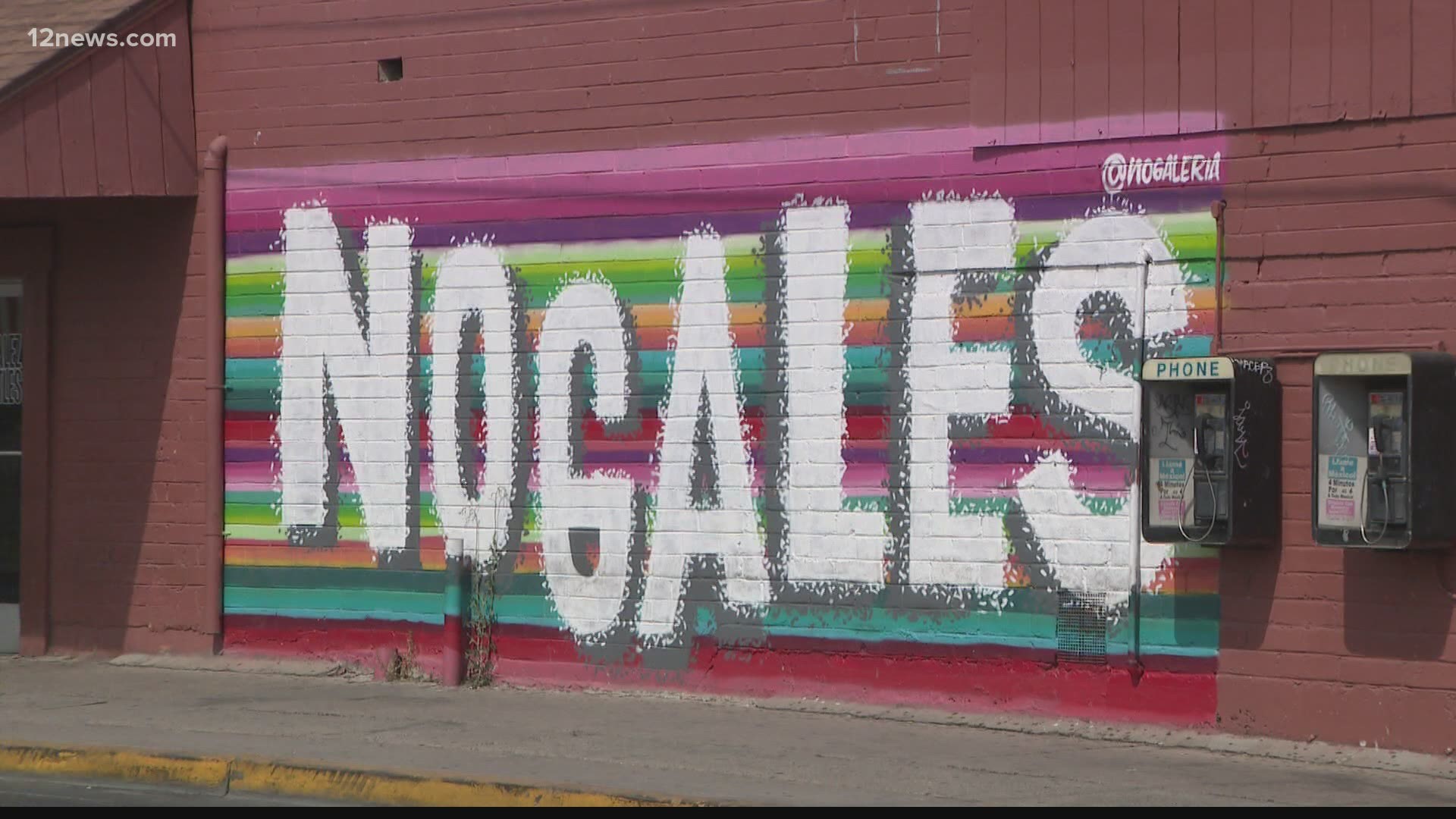NOGALES, Ariz. — Restrictions on non-essential travel at the U.S.- Mexico border have been extended for the 16th month in a row. Reopening is not projected until August 21.
The Biden administration cited concerns over surging COVID-19 cases, specifically the rise in Delta variant cases. The measure does not apply to U.S citizens as they can go back and forth the border freely.
The U.S. northern and southern borders have been partly closed since March 2020. The Trump administration issued travel restrictions at the start of the pandemic in an effort to stop the spread of the deadly virus.
Since then, federal officials have evaluated and extended the travel restrictions on a monthly basis. The measure also does not apply to cross-border trade or people traveling for medical or educational purposes.
The partial closure has created challenges for small business owners and residents living in border towns across the country. Towns that heavily depended on daily binational travel have faced a significant decrease in visitors and sales, said Arturo Garino, Mayor of Nogales, Arizona.
“I’m very disappointed,” he said. “It’s tiring and it’s frustrating. If the border is being closed for COVID-19 related reasons, we should not allow U.S. citizens to go out [to Mexico] and come back on Sunday, because that should also be COVID related.”
Nogales is a community divided by two, split by the towering border wall. Twenty thousand people live on the Arizona side, while a whopping 220,000 reside in Sonora, Mexico.
Garino said almost 70% of his town’s sales tax comes from people crossing the border from Nogales, Sonora.
After 16 months of back-to-back travel restrictions, Garino said their economy has taken a toll.
“From July to February we had lost close to a million dollars,” he said. “I don’t have the official numbers, but those were the losses we were seeing in just one report I saw.”
In a document submitted on the Federal Register, Homeland Security Secretary Alejandro Mayorkas said, “Given the sustained human-to-human transmission of the virus, coupled with risks posed by new variants, returning to previous levels of travel…[increases the] risk of exposure” to COVID-19.
Mayorkas also said DHS noted positive changes citing the 336 million vaccine doses that have been administered in the U.S.
The U.S. Center for Disease Control and Prevention move lowered the risk exposure in Canada and Mexico from COVID-19 from Level 4 (Very High) to Level 3 (High), adding “in recognition of conditions that, while still requiring significant safeguards, are improving.”
“It’s disappointing because every day and every weekend, there’s a line a mile, a mile and a half of vehicles going to Mexico and that’s okay?” Garino questioned. “But if it’s COVID related we should not be allowing that to happen.”
Garino said because of pandemic losses caused by closures and travel restrictions, small businesses have been forced to close, or even relocate to Mexico.
Adding a layer of concern that when restrictions are lifted, Mexican shoppers will not cross the border to the purchases they used to only have in the U.S. but are now available on the Mexico side.
Two hundred and thirty-five miles west in Yuma, Arizona, the border town is facing a different challenge because of the travel restrictions at the Canada border.
“We have about 30% of our snowbirds that come here every winter come from Canada, if we have to take that hit again this winter, we are going to see businesses close,” said Kimberly Kahl, Executive Director of the Yuma County Chamber of Commerce.
As Yuma and Nogales head into their peak seasons, Kahl and Mayor Garino both said they are preparing for the worst and preparing for the restrictions to be extended the following month.
“They could tell us ‘you know we are going to remain closed for the next six months, it be better, that way we can figure out what we are going to be doing,'” Garino said.
Air travel between the U.S. and Mexico remains unrestricted. Canada said this week it will reopen to fully vaccinated Americans.
COVID-19 News and Updates
Subscribe to the 12 News YouTube channel to receive notifications on the latest videos about the latest information on the coronavirus.

